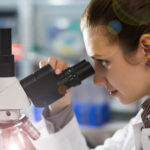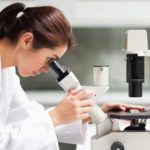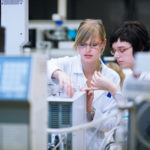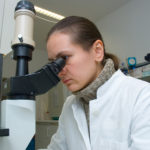
Transforming treatment for arthritis and uveitis
Researchers from the University of Liverpool’s Institute of Translational Medicine and Alder Hey Children’s NHS Foundation Trust will join a UK-wide effort, including colleagues from five other universities, to drive the development of new, targeted treatments for children and young people with juvenile idiopathic arthritis (JIA) and its associated eye inflammation condition, uveitis. The University … Continue reading Transforming treatment for arthritis and uveitis

Test for kidney damage in children with cystic fibrosis
New research, published in Nature Scientific Reports, conducted by the University of Liverpool and University College London highlights effective methods for identifying a common side effect in children receiving drug treatments for cystic fibrosis. The genetic disorder cystic fibrosis (CF) is characterised by secondary bacterial lung infections, often by a specific resistant bacteria, pseudomonas aeruginosa. … Continue reading Test for kidney damage in children with cystic fibrosis

Genetic variant discovery to help people with asthma
Research from the University of Liverpool, published in Lancet Respiratory Medicine, identifies a genetic variant that could improve the safety and effectiveness of corticosteroids, drugs that are used to treat a range of common and rare conditions including asthma, and chronic obstructive pulmonary disease (COPD). Corticosteroids are very effective in the treatment of asthma and … Continue reading Genetic variant discovery to help people with asthma

£1.6m to develop novel meningitis blood test
Researchers at the University of Liverpool’s Institute of Infection and Global Health are developing a new commercial blood test to improve the diagnosis and management of people with suspected meningitis. The University of Liverpool reports the £1.6m project, which is funded by the Medical Research Council and industrial partner Fast Track Diagnostics, could also help … Continue reading £1.6m to develop novel meningitis blood test

Sedentary lifestyle type 2 diabetes risk
Scientists at the University of Liverpool have found that a reduction in physical activity and an increase in sedentary behaviour has detrimental effects on the body, and could be more harmful if a first degree relative has Type 2 diabetes. The University of Liverpool reports the Diabetes UK-funded study looked at forty five people with … Continue reading Sedentary lifestyle type 2 diabetes risk

Sensor City gets £3.5m for 5G health and social care project
Sensor City has been awarded a £3.5m grant to investigate the opportunities of 5G community Wi-Fi in health and social care. The University of Liverpool reports the grant is one of only six awarded through the Department for Digital, Culture, Media and Sport (DCMS) 5G Testbeds and Trials programme which aims to spearhead efforts to make … Continue reading Sensor City gets £3.5m for 5G health and social care project

“Wonder drug” ineffective for alcohol use disorders
A new study, published in Addiction, conducted by researchers from the University of Liverpool highlights the ineffectiveness of a specific drug treatment for alcohol use disorders. Baclofen is a medication which has been used since the seventies as an anti-spasticity treatment. More recently it has been used as a treatment for alcohol use disorders. Baclofen … Continue reading “Wonder drug” ineffective for alcohol use disorders

University of Liverpool leading £4.7m Zika vaccine project
The University of Liverpool is leading on a major new collaborative project to develop a Zika virus vaccine that is suitable for use in pregnancy. The University of Liverpool reports the project, supported by a £4.7m award from Department of Health and Social Care, and managed by Innovate UK, aims to take two new vaccine … Continue reading University of Liverpool leading £4.7m Zika vaccine project

Single genetic change makes African salmonella dangerous
Scientists have identified a single genetic change in salmonella that is playing a key role in the devastating epidemic of bloodstream infections currently killing around four people each year in Sub-Saharan Africa. Invasive non-typhoidal salmonellosis (iNTS) occurs when salmonella bacteria, which normally cause gastrointestinal illness, enter the bloodstream and spread through the human body. The … Continue reading Single genetic change makes African salmonella dangerous

How cancer cells repair after proton beam therapy
Collaborative research conducted in Liverpool and Oxford, published in The Red Journal, identifies the specific cellular process that helps cells damaged as a result of proton beam therapy, repair themselves. Proton beam therapy (PBT) is a type of radiation treatment that uses protons to treat cancer. A proton is a positively charged particle and a … Continue reading How cancer cells repair after proton beam therapy








